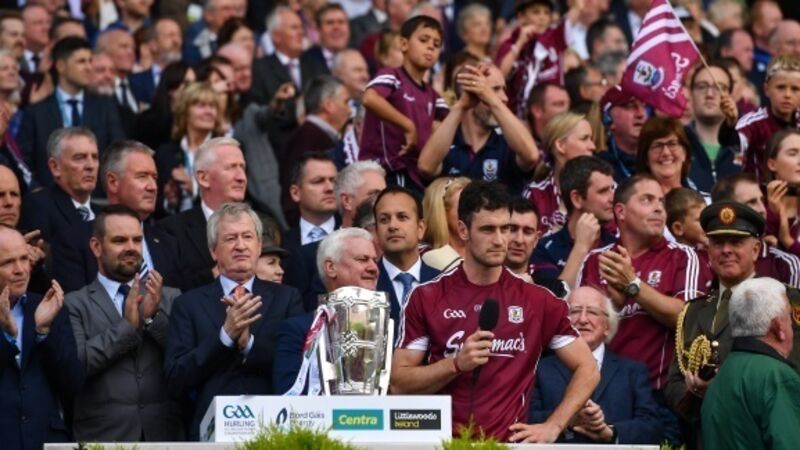Burke shines a spotlight on mental health issues

The Galway captain had every reason to wallow in the moment but then he had plenty to say too. There was the heartfelt recognition of the recently-deceased Tony Keady and then a salute to their former team-mate Niall Donoghue, who took his own life three years ago. “One other person that I can’t let today go without mentioning. He was soldiering with us for years, a good friend of mine, a first cousin of Conor Whelan; he passed away in 2014 — Niall Donoghue. We’ll never forget him. We remember him today. We’ll give a small shout out to Pieta House who are doing great work for people who are in depression and hopefully, they’ll help many more.”
On Galway’s greatest day, Donoghue wouldn’t be forgotten nor would the message that we need to talk more about suicide. Standing on the steps below Burke, his team-mate Davy Glennon would have keenly appreciated those sentiments. Pieta House’s work is incredible and Glennon will testify the work of Cluan Mhuire is just as immense.












